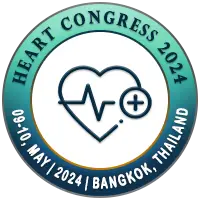
Mustafa Abrar Zaman
St. George’s University, United KingdomTitle: Comparing Triple Combination Drug Therapy and Traditional Monotherapy for Better Survival in Patients With High-Risk Hypertension: A Systematic Review
Abstract
High-risk hypertension patients are more susceptible to cardiovascular disease, stroke, and mortality. Monotherapy and triple combination drug therapy are two different approaches to treating hypertension. Monotherapy involves using a single medication to manage hypertension, whereas triple combination therapy involves the simultaneous use of three different antihypertensive medications from different drug classes. Making a fast switch from monotherapy to combination medication is one method to regulate blood pressure (BP) better. It is widely recognized that a significant proportion of individuals with hypertension require combination therapy to manage their condition effectively. However, it is crucial for healthcare providers to weigh the risks and benefits of triple combination drug therapy when deciding which treatment approach is best for their patients.
Biography
Mustafa Abrar Zaman wholeheartedly embraced his calling, dedicating himself to rigorous preparation for the UCAT and BMAT exams. This diligence bore fruit as he earned admission to St. George’s University. Immersed in the study of the human body and the latest medical advancements, he eagerly absorbs knowledge while developing crucial diagnostic and treatment skills. Guided by empathy and compassion, he is committed to making a meaningful impact in patient care and serving my community. He is a Ambassador for STEM Learning, UK. He is also the Vice-President of STEMM Society in the University. He has over 10 publications and has been serving as a Peer-Reviewer for Cureus Journal of Medical Science. Additionally, he is an Associate - Medical Student Member of Royal College of Physicians.

